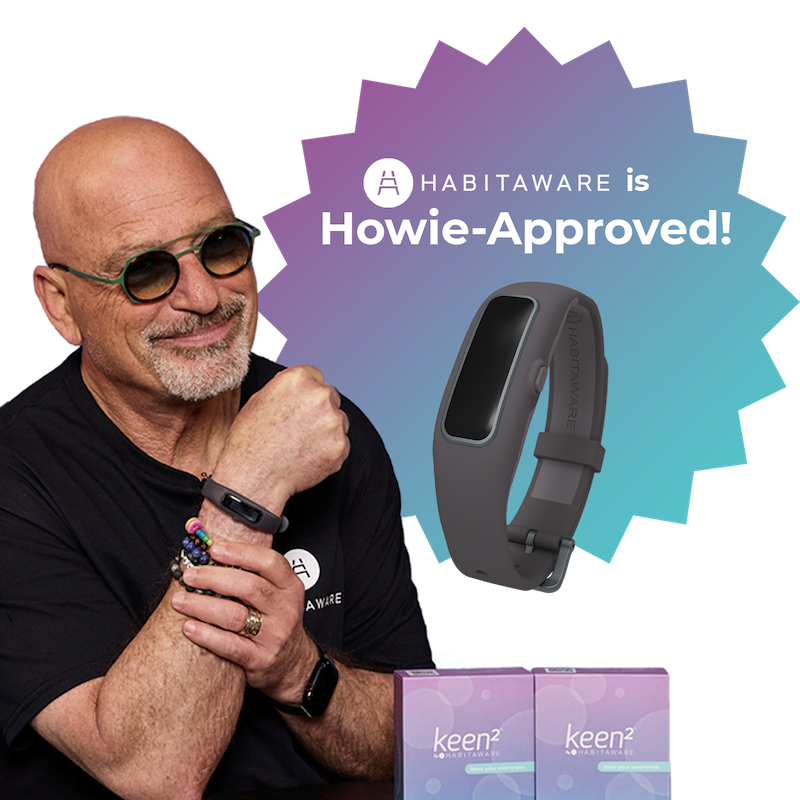Mari is a 23 year old living in Minnesota. This is how Mari is Conquering with Keen, in her own words.
A Job That Heals
Hi! I’m Mari. I work as a designer at HabitAware. The posts you see on Instagram, illustrations, brochures, and the soon-to-be-unveiled packaging for Keen2 – that’s me! When I started at HabitAware, I worked as a marketing intern during my Junior year of college. After a year, I was hired on as a contractor, and I’ve continued working at HabitAware since.
When I started the internship, I truly had very little perception of what trichotillomania and dermatillomania were. What I did know was that I wanted an internship where I felt like I was making a difference and actively helping people. HabitAware offered me the opportunity to do just that, and it is so rewarding to see Keen actively make positive change in people’s lives. I am so proud to be working to shatter stigma and create a mainstream dialogue about mental health, particularly body focused repetitive behaviors (BFRBs) like hair pulling (trichotillomania), skin picking (dermatillomania) and nail biting.
I had no idea how common they were! An estimated 1 in 20 people?? If I stand in line at the grocery store someone else probably has a BFRB. And somehow, so little people know about them. I think about an old friend from high school who would bite their nails through class, and a family member who confessed that they were unable to stop picking at their scabs, and others who’ve expressed frustration with their “bad habits.”
Would things be different for them now if they had known about BFRBs back then? If they had known that they’re experiencing, if it truly does bother them, can be a diagnosable behavior that they can work on improving? I didn’t have any perception that what I was doing to my skin could’ve been diagnosable but being at HabitAware showed me what dermatillomania really was. And it got me thinking, “hey… I think I might relate to this dermatillomania thing.”
From Open Wounds to Open Mind
So, here’s my dermatillomania recovery journey – so far!
I inherited my dad’s skin, which can be described as easily prone to breakouts. My mom grew up lucky, with relatively clear skin. I think it’s important to have this information going into my experience, because my dad died when I was 9: well before I had my first breakout. Love my mom, no resentment against her, but she didn’t really know how to be understanding about my struggle with acne.
I remember being in the bathroom mirror, staring at my first zit. I popped it. “Mom,” I called, “I popped my zit. What do I do now?” Her reaction was swift.
“You popped it?” She sounded frantic, almost mad at me. I wasn’t expecting such an emotional reaction to a simple action. Besides, wasn’t that what you were supposed to do? Pop zits?
“Squeeze it!,” she told me, “Make sure you get all the gunk out!” After that, she told me not to pick at my zits again, but I didn’t see that as an option. If there was a zit on my face, and I wanted it gone, I would pop it! And I’d make SURE that all of the gunk was out. Who wanted a big whitehead on their face? That process left big splotches of raw skin all over my cheeks, forehead, and chin.
Over and over, my mom would say “don’t pick at your zits.” But I felt like I had no other option. There were so many, and they would hurt. I hated the feeling of having them on my face, but I hated the feeling of the big red scabs they left more. So, I’d pick at those too.
I’d subconsciously pick all the time during class. I would wear sweaters specifically because I anticipated needing to press my sleeve against a bloody scab I picked off during a lesson. On hot days, I’d tear off a little piece of paper from my notebook and try to discreetly press it against any bloody spots. Then I’d get home and stare at myself in the mirror, popping any whiteheads, tearing off scabs, and preventatively getting any blackheads. I can’t describe it as anything other than addicting, because it felt like something I had to do.
All through high school, I would look at myself in the mirror and think “if only I didn’t have acne anymore, then I’d be pretty enough. Good enough. Confident enough.” Whatever adjective, I thought it all. Chalk it up to depression, anxiety, feeling out of place, I clearly needed an outlet, and my acne was right there.

Senior year, I had finally begun to accept it. I started calling myself a proud pizza-face. I thought, red splotches and scabs aren’t that bad to live with. I liked who I was as a person, and I saw myself making a lot of improvements in other areas of my mental health. I decided that I could deal with acne, and the scabs and marks that I associated with it.
But my mom wasn’t ready to accept me having acne forever, so she had me go to a dermatologist. I tried a few different types of antibiotics, but nothing ever stuck. Eventually, Mom decided we’d get serious– and I started taking Accutane. I took it all through my freshman year of college, and by the time I reached sophomore year, I was hardly getting any zits. I’d be picking in class, and I would find far less bumps. I started picking at the moles on my neck, but that proved to be extremely painful, so it was easy to stop myself. I continued to pick at my face in the mirror. I’d want to search for something to pop. I would pick at blackheads and whatever else looked remotely like it could turn into a blemish, but it wasn’t as satisfying anymore.
The strategies I put in place to make healthier choices were honestly subconscious. I started wearing hair ties on my wrist and rings on my fingers play with. I realized that while my right hand took notes, my left hand liked to have something to do, too. A hair tie or ring were perfectly adequate things to fiddle with. When I looked in the mirror, I realized that I didn’t have the urge to pick as much. With my skin starting to get a little better, the urge to pick was happening less. It was the slowest “breaking the cycle” I had ever experienced, to the point where I didn’t even know it was working.
By the time I started work at HabitAware, I had gotten pretty good at finding substitutes to skin-picking. But then I started work, learned what a BFRB was, and I realized – oh. It wasn’t the acne that was leaving open wounds on my face. It was my inability to leave it alone. But, somehow, I had figured out ways to channel that restless energy elsewhere. And if I put actual intention behind it, I’d be able to have an even better understanding and control of my skin-picking than I already did. There are still bad days. If I’m breaking out I have to watch what my hands are doing when I’m working. Even now, If I see myself in the mirror and there’s a prominent white head, my hands go to pick at it, guaranteed. I have to stop myself and ask, “is that really what you want?” That’s where Keen comes in handy for me. Keen's vibration is my little prompt to tell myself, “is that what you want?” Sometimes, it feels like all I want in the moment is to get that thing off of my face. But, sometimes, I answer “no, I don’t want to pop that.” Then I gently wash my face and go on with my day.
My hands still want to keep busy. I’ll find myself playing with loose threads on my clothes, twirling my hair, fiddling with whatever is around– but as long as it’s not my skin, I’m happy. My Keen is trained for skin picking and keeps me on track when I have to sit down and do heavy reading or note taking. I know that dermatillomania, and wanting my fingers to have something to do, is something I’m always going to deal with. But now, thanks to the replacement strategies and self-care I’ve developed, and everything I learned at HabitAware, I feel pretty well prepared to take on my mental health journey, one step at a time.



